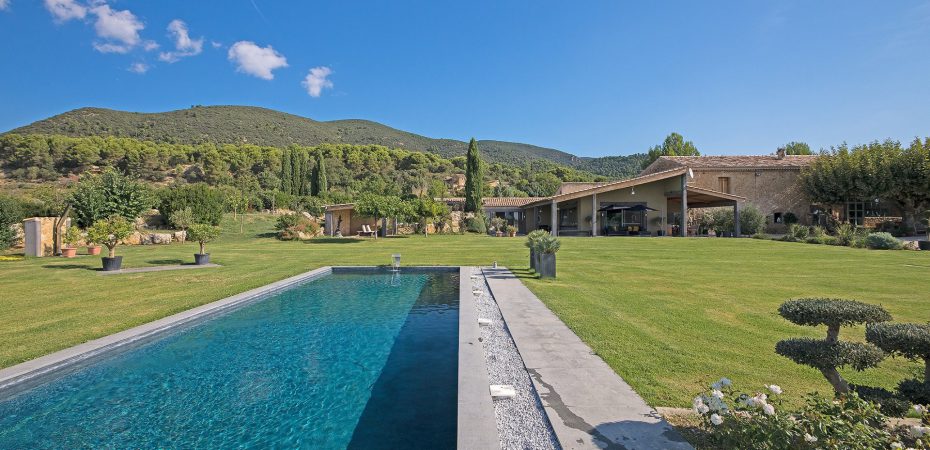Click here to view the property for sale in our image above.
The questions here are not just a matter of price. Besides the expectations and the lifestyle of future buyers, there are many other factors that may influence the decision of choosing between a new and an old building program.
The French property market is considerably made up of old buildings and properties.
In 2014, 465,000 old properties (houses and apartments) were bought or sold, while only about 380,000 new modern properties were offered. We can, however, note that the latter is progressing considerably due to many attractions and financial advantages to investing in modern construction. Let’s analyse the advantages and disadvantages of each real estate program.
New real estate
New dwellings offer functional and modern living spaces, but may be more expensive and less available. Let us have a look on the advantages and disadvantages of the new building programs.
1. Modern standards
Newer constructions provide quality services since they are mostly still in line with the latest standards. They comply with all the regulations concerning thermal insulation, sound insulation and all of the other latest construction standards. The main advantage of these programs is the possibility of modifying the said plans so that they fit your taste and needs, while simultaneously meeting modern standards.
2. Guarantee level
Buying new property offers numerous legal guarantees.
After completion of the building, owners’ remains are granted two years of free damage insurance against the manufacturer’s works under the guarantee of ‘perfect completion’. This protection makes it possible to take care of numerous types of repairs. The manufacturer is equally liable for 10 years for any workmanship that would endanger the stability or viability of the building (major cracks, waterproofing of the walls, roofing or weakness in the foundations etc…).
3. Favourable property provisions
Investment in new building programs may also offer advantageous tax provision. For example, the 0% interest rate loan or the Pinel device (contact Cabinet Roche – a leading financial adviser on French property information – in case you are a non-resident).
4. Fewer taxes
New housing programs partially offset its high price by lower costs at both acquisition and throughout the subsequent years. The absence of transfer taxes entails low fees of notary.
One can equally benefit from an exemption from the property tax for the first two years after the completion of the work on the building.
5. Time and money
The price per square metre of new homes in France is 15 to 20% higher than the cost of the old one, which is enough to deter a large number of potential buyers from even thinking of purchasing a newly-constructed building. The acquisition of a brand new property requires a lot of patience. 18 to 30 months can easily occupy the time between the signature of the booking contract and the day of the handing over of the keys.
Old real estate
Old buildings offers a huge choice to future buyers, and a significant margin of negotiations. However, the guarantees are less important and the tax system more rigid in this case.
1. Properties available quickly
Old dwellings have sufficiently diverse characteristics to enable the ideal property to be found. The buying process is much-more streamlined and rapid, when compared to purchasing a modern property. From the signature of the provisional sales agreement to that of the authentic deed and the installation in the premises, it takes an average of three months.
2. Accessible prices
A discount of 10,000 – 15,000 € on the displayed price is not uncommon in reason of the large offer. This discount makes it possible to fully cover notary fees or certain restoration works. Equally, in reason of their geographical locations, you can always hope for a rise in plus-value throughout the upcoming years.
3. Renovation works
An old dwelling is bought ‘as is’, with its qualities and its vices.
Even with all of the mandatory diagnoses made, you should not be surprised to face more unforeseen work and expenses in the future. Old properties do not usually meet the 2012 thermal regulations. You will therefore consume more energy to heat your property unless you perform important works.
4. Less favourable taxation
The transfer taxes here are levied by the local authorities and the French state. Let’s not forget about the notary fees, which may be up to 8% of the total sale price.
Choosing between the two is one of the hardest steps in deciding which property to purchase. For detailed financial advice, visit the Cabinet Roche & Cie website.
